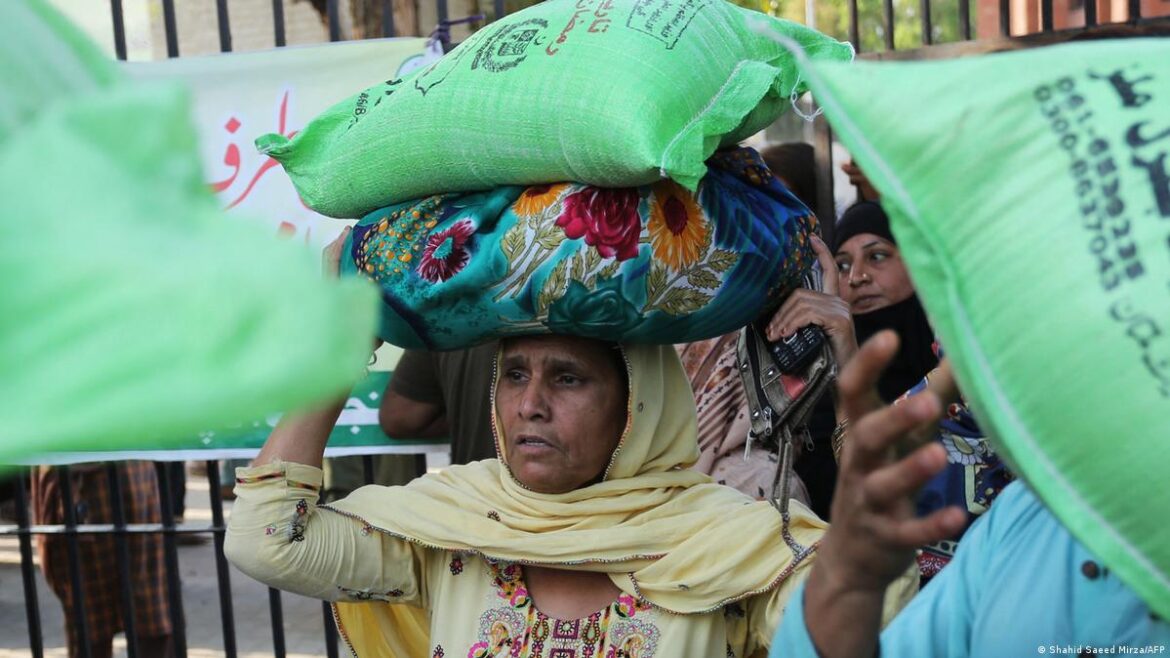By Staff Reporter
ISLAMABAD: Consumer price inflation rose 9.6 percent in August from a year earlier, the slowest pace in 34 months, as the central bank prepares to cut interest rates for the third time this year.
“CPI (consumer price index) general inflation increased to 9.6 percent on a year-on-year basis in August 2024, compared to an increase of 11.1 percent in the previous month and 27.4 percent in August 2023,” the Pakistan Bureau of Statistics (PBS) said on Monday.
The monthly inflation rate stood at 0.39 percent, according to the PBS. The urban inflation increased by 11.7 percent and rural inflation by 6.7 percent in August. Food prices rose 2.46 percent in August from a year earlier, while transport costs increased 3.17 percent. Housing and energy expenses climbed 22.2 percent, slower than the 25.3 percent pace in July.
The finance ministry expects inflation to fall further in September, within a range of 9.5-10.5 percent. The central bank forecasts average inflation of 11.5-13.5 percent in the fiscal year through June 2025.
The inflation rate, which peaked at 38 percent percent in May 2023, has been declining since June, giving policymakers room to lower borrowing costs and support economic growth. The State Bank of Pakistan has already cut rates by 250 basis points in the last two meetings and is scheduled to review monetary policy again on Sept 12.
Brokerage Topline Securities noted that the August reading represents a 34-month low, bringing the average inflation rate for the first two months of FY25 to 10.36 percent, down from 27.84 percent in the same period last year.
Analysts said inflation is falling because the currency has remained stable over the past 12 months. The rupee had risen 9 percent-10 percent against the dollar over the last year, bolstered by Pakistan’s moves to restrict demand for the greenback through import controls, high interest rates, and other measures.
Pakistan struck a deal last month with the International Monetary Fund for a $7 billion loan program that includes tough measures such as higher taxes and electricity prices. The prospect of such moves has worried poor and middle-class Pakistanis.
Analyst Khurram Schehzad at brokerage Alpha Beta Core said the decline in inflation is a positive sign for the economy. “Declining pace of inflation followed by potential cuts in interest rates should help reduce cost of capital for industries and businesses,” Schehzad added. “With declining cost of capital, industries will be able to raise and deploy fresh investment capital, setting the stage for better growth and employment prospects.”
“Rate cuts will help reduce fiscal deficit of the government by significantly reducing interest repayments in FY25, thereby creating fiscal space for more productive use amid structural reforms under the IMF’s new Program. Reduced pace of inflation should help improve affordability by the masses over time.”
The decline in inflation is a welcome relief for Prime Minister Shehbaz Sharif’s coalition government, which has been facing criticism for high cost of living. Authorities are undertaking reforms to win the International Monetary Fund’s final approval for a new loan program.
Copyright © 2021 Independent Pakistan | All rights reserved




